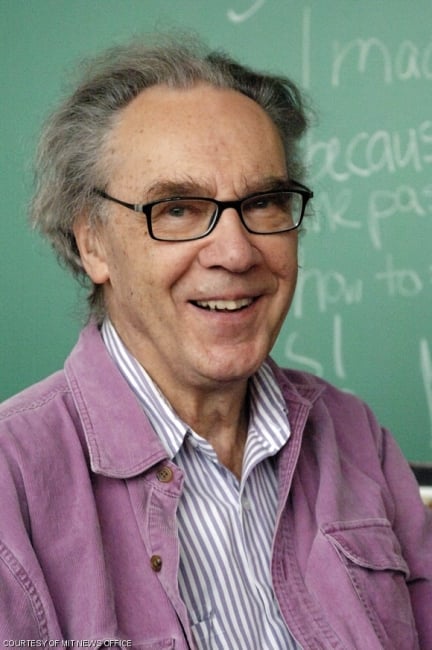You have /5 articles left.
Sign up for a free account or log in.

Massachusetts Institute of Technology
Since the Massachusetts Institute of Technology in December cut ties with him over its finding that he had engaged in online sexual harassment, former physics professor Walter H. G. Lewin has focused on his legacy, not litigation.
Lewin, who turned 79 in January, still personally challenges the harassment claims brought to M.I.T. by a learner in a massive open online course he taught in fall 2013 but is not preparing to challenge the institute, according to an e-mail he sent to a former fan. Lewin is instead working to make sure his video lectures live on, in some cases asking fans to compile and share the clips on platforms such as Facebook and YouTube.
The institute in December stripped Lewin of his emeritus title and removed his lectures from M.I.T. OpenCourseWare, a repository of free educational content, to "help prevent further harassment." M.I.T. justified the removal by saying the courses “presented a [real] danger for people... expecting a student-teacher relationship and getting something that was inappropriate.”
A spokeswoman for M.I.T. did not respond to a request for comment. Speaking to Inside Higher Ed in January, Provost Martin A. Schmidt said the institute did not know if Lewin was communicating with former students, but that it had “closed the communication channels through M.I.T.”
The principles behind OpenCourseWare -- “delivering on the promise of open sharing of knowledge” -- are now ensuring that students have multiple ways of accessing Lewin’s video lectures. The content on OpenCourseWare is made available under a Creative Commons license, meaning users are free to share and adapt it for noncommercial purposes as long as they “give appropriate credit.”
M.I.T.’s decision to remove the videos has some physics students and scholars crying censorship, and has renewed the debate about if -- or to what extent -- a celebrity’s actions outside the spotlight should tarnish his professional achievements. Some view Lewin’s lectures as a crucial resource for learning physics, regardless of the creator’s personal life. Others have been unable to disconnect them from the man who, according to M.I.T.’s investigation, “engaged in online sexual harassment” of several women.
A summary of those competing arguments can be seen in two comments posted in response to Inside Higher Ed’s article explaining the details behind M.I.T.’s decision:
“I think that before any of us turns to Lewin’s videos or recommends them to others, we ought to consider what it means for the physics community to champion him as a great educator,” one commenter wrote. “Lewin violated a fundamental social contract between teacher and student.... I agree that Lewin's personal conduct has no bearing on his physics research, but his offenses are of the sort that should disqualify anyone from being considered a great educator.”
Those who oppose taking the videos down, meanwhile, often bring up the transgressions of other famous scientists. “I don’t care that Newton was a petty asshole, an alchemist and a religious nut; I don’t care that Feynman was misogynist; I don’t care that Heisenberg worked for the Nazis; and I don’t care about Lewin either,” another commenter wrote. “I care about their knowledge that they gave to the world. I am not responsible for their lives, that’s their goddamn headache, but don’t punish me for their sins by restricting my access to their material.”
Harvey A. Silverglate, Lewin’s lawyer, declined on behalf of his client to discuss the First Amendment implications of M.I.T. deleting the videos. Silverglate cofounded and serves as chairman of the board of directors for the Foundation for Individual Rights in Education, an organization that advocates for free speech at colleges and universities.
Despite M.I.T.’s actions, the videos are still only a search away. Web sites that hosted the videos before the institute took them down remain unaffected, and over the last three months, YouTube channels such as For the Allure of Physics and Lectures by Walter Lewin. They Will Make You ♥ Physics, among others, have sprung up. The former, launched a day after M.I.T. announced it had removed Lewin’s lectures, has more than 3,000 subscribers and 98 videos. By crediting the institute, explaining any edits and publishing the videos under the same license as OpenCourseWare, the channels are free to operate.
Lewin’s videos have also long been popular in Facebook groups generally related to physics or, in some cases, created as fan clubs. Before he left social media as details of the sexual harassment case became public, Lewin participated in some of those groups.
Even though he is no longer active on Facebook, Lewin has been in touch with at least one administrator behind one of the groups.
Todd L. Giroux, a Los Angeles-based photographer, founded the Facebook group For the Love of Physics -- also the title of Lewin’s 2011 book -- in 2012. He dedicated the group to a handful of researchers and professors, including Lewin, whose videos he said “completely changed how I looked at the world.” The group now has more than 1,200 members.
The videos made Lewin seem like “such a nice professor that is willing to help out all the time,” Giroux, 39, said in an interview. But after forming a friendship with the professor, Giroux said he noticed Lewin sometimes acted “cold and rude” -- particularly in response to students giving incorrect answers.
Lewin joined For the Love of Physics and soon assumed an administrative role, at times telling Giroux to add new members or kick others out, threatening to leave if Giroux didn’t follow through. “I dedicated the page to him and I learned so much, so I might as well help out as much as I can so he doesn’t leave,” Giroux said of his mind-set at the time.
“I looked at him like a father figure,” Giroux said. “I felt like he manipulated the situation for me to do it. He knew I had a soft spot for him.”
Lewin’s activity in the group was punctuated with the occasional break, Giroux said, but he vanished completely from social media in fall 2014 as M.I.T. began investigating the sexual harassment claims. Then, last month, Lewin resurfaced in an e-mail from a private account, asking Giroux to post a link to a YouTube channel to a handful of Facebook groups, including For the Love of Physics.
Giroux obliged, but said he challenged Lewin to be honest about the sexual harassment case. In an e-mail response obtained by Inside Higher Ed whose authenticity Giroux confirmed, Lewin described M.I.T.’s actions as “irrational and illogical” and said that the institute deleted his videos “for PR reasons” and that none of the accusations against him are substantiated. He has since been advised to "lie low and let it all pass," Giroux said. Lewin did not respond to multiple requests to comment about the allegations in January.
When Giroux learned the full details of the case, however, he said he felt he had been “taken advantage of.” Last week, he posted an apology to For the Love of Physics, saying “those lectures will never be posted on OUR group page in the future again.”
“I gave him a chance to tell me what happened... but he tried saying it was a misunderstanding,” Giroux said. “That’s the part where I completely lost all trust in him. It was hard for me to see that caring professor anymore. I can’t even watch the lectures, because that person is not who that person is.”








